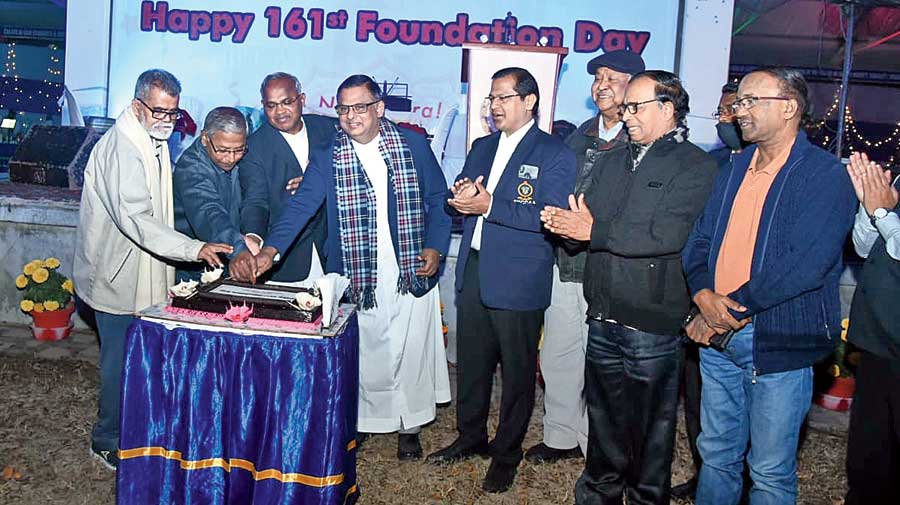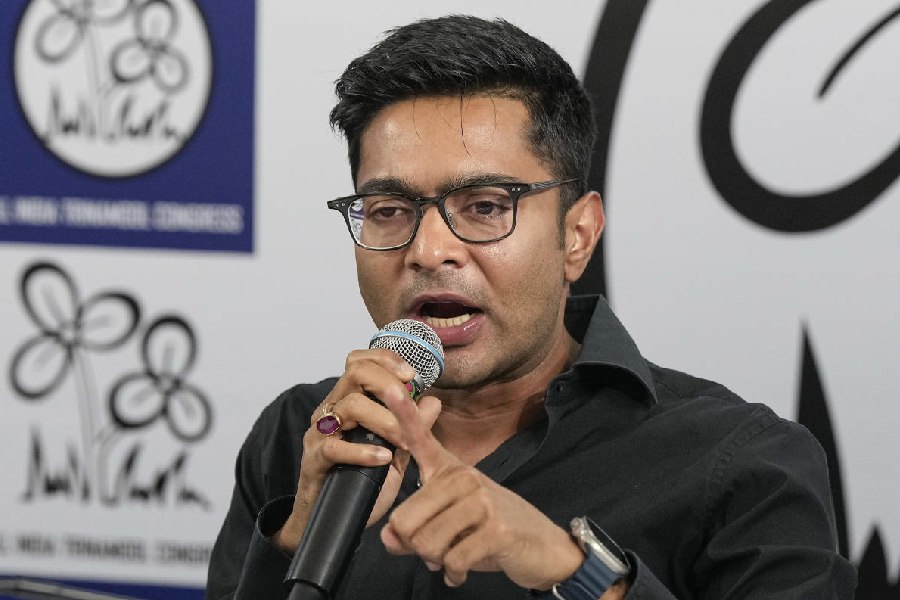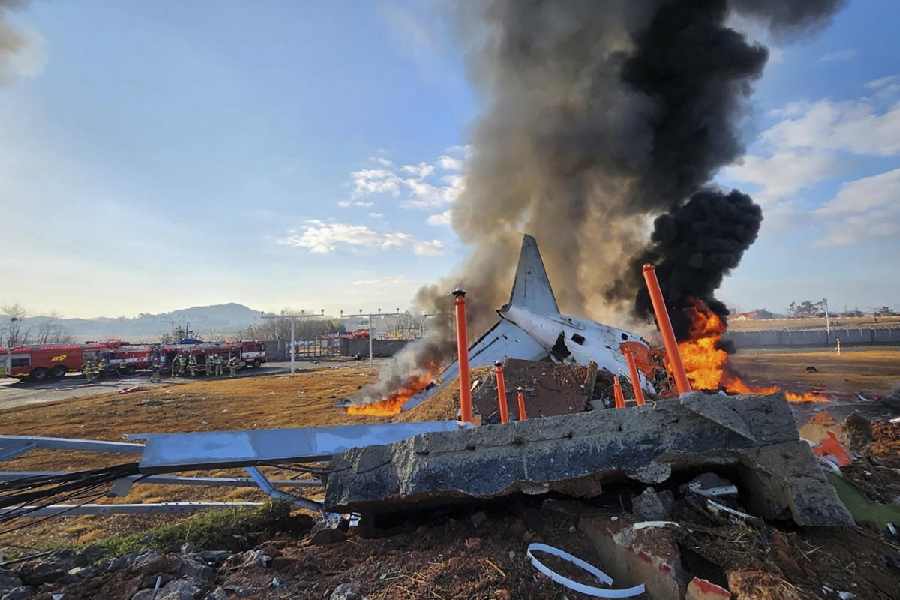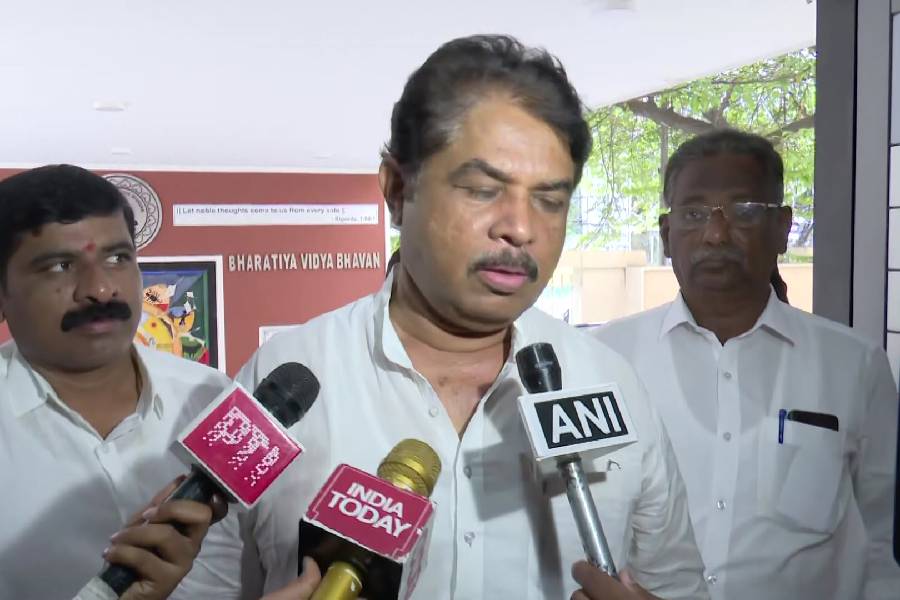St Xavier’s College will turn 162 on Saturday. Past and present students and teachers of the institution came together to celebrate the eve of the 161st anniversary of the foundation day on the Park Street campus on Friday.
The Jesuit priests at the gathering included Father Dominic Savio, the principal of the college, and former principals Father Felix Raj and Father PC Mathew. The programme was organised by the St Xavier’s College (Calcutta) Alumni Association
Rev Fr Dominic Savio
Remembering St Xavier’s College is to take a quiet walk back to the ’50s and ’60s when it was happy and content to be a college that stood quietly apart as a centre of unassuming excellence in academics, sports, theatre and music.
In the turbulent ’60s and ’70s, St Xavier’s, just down the road from the swinging nightlife of Park Street, also stood apart as an oasis of tranquillity surrounded but untouched by the passionate and sometimes violent ideologies of student movements.
Some things do not change. St Xavier’s is still an oasis of tranquillity, still a bastion of discipline, still an institution committed to academic quality and all-round excellence. But the college is no longer happy and content to stand quietly apart.
The college is driven by a dream to expand and excel. The dream began a long time ago, in 1978, when the college took the momentous decision to become co-educational. Enrolment almost immediately doubled, especially in the arts departments. But it was in the ’90s that the college began to push the limits of its ambition to grow and develop and strike ahead into the future.
The 21st century vision encompasses the continuing improvement of academic quality as a centre imparting education of international merit to compete on a global platform and attract the best students and teachers from India and abroad.
This vision began to be implemented gradually. From the late ’90s, new departments began to be added; an undergraduate management degree course was introduced; postgraduate departments followed in commerce and science; integrated MSc programmes were initiated; and the grand culmination of this academic drive was the start of doctoral courses in select departments. To encourage research, the college made provision for seed money to promising research initiatives.
Since 2017, postgraduate departments have been added in English, political science, economics and sociology. Courses in data science, history and chemistry are on the anvil.
Soon, all departments of the college will be ready to offer PG and PhD courses to provide students with a seamless academic transition and varying points of exit.
The academic vision now also has a broader scope. It is to introduce popular, cutting-edge programmes at both UG and PG level. This departure from traditional courses in the basic sciences, humanities and commerce is part of the vision to make the college contemporary and relevant to make it an exciting and attractive destination for students looking for new kinds of academic experience and training.
Such growth and expansion requires constant upgrade of infrastructure. As a Heritage College, we cannot alter existing structures; yet the continuing expansion requires additional space for classrooms, laboratories, canteens, and other conveniences.
The college library was shifted to the old hostel premises, which now also houses the BEd department in a separate and self-contained facility. Smart classrooms, a Wellness Centre, more toilets, a modern canteen with an extension outside the library, have all been part of the modernisation and improvement of infrastructure.
Old labs have been upgraded; new labs like the finance lab and the Central Research Facility, which is open to students and scholars from other colleges and institutes, have been set up to ensure research and development. The faculty are offering valuable consultancy services through Consultancy Cell, which is strengthening the industry-academia collaboration.
To accommodate the physical demands of further growth, the college plans to create another campus on EM Bypass. Vision 2025 will transform this campus into a communication hub and include multimedia and mass communication departments. Other PG departments will also be accommodated here to free space on the Park Street campus.
Embedded into this growth were triggers that acted as catalysts to change. The year 2006, when the college was granted autonomy, can be considered as a momentous turning point. The college, still indelibly linked to its mother-university, had to learn to function as an independent institution charting its course, looking to the future, and establishing new systems.
The first step towards this was to create a new curricular structure that departed from the older 1+1+1 system. The transition to a semester system was a challenge that required administration and faculty to reconfigure the old traditions of teaching and learning. There were inevitable teething problems but the college quickly found its feet, and put in place new systems of governance, administration, pedagogy, assessment and examination.
The proof that the college is following the right path of excellence lies in the fact that we have been placed in 10th position in 2019 by National Institutional Ranking Framework (NIRF) among the colleges nationwide. We got more encouraged and pulled our strings up to work harder when we moved up in ranking to 7th in 2020.
Other triggers have set up landmark years: the declaration of St Xavier’s as a Centre of Excellence; the granting of heritage status; and most recently ISO certification of the quality of education, infrastructure and opportunity.
The college sees these as natural and inevitable steps in the ladder of progress. It has meant a change in the fundamental character of the college. Back in 1978, the college had a very different face. It was almost bucolic in its leafy verdant greens that by
4pm would be deserted and empty. The green benches, still untouched by time and change, stood quietly watching the last stragglers walking to the backgate on their way home.
A solemn stillness would fall on the evening campus and the shadows in the dim corridors would lengthen. The whizzing swallows which had made the corridors home would fly in to nest. A solitary light from the physics lab on the second floor cast an empty pool of lonely light. The college was redolent with an atmosphere of scholarship and learning that belonged to another age.
Now, 4pm today is abuzz with activity as the evening’s commerce classes begin. At the Entrepreneurship Development Cell where the students remain busy with brilliant start-up ideas and their implementations after their regular class hours.
The college has a different feel. It remembers where it came from and will continue to hold a candle to the past, knowing that it defines and strengthens us as we hold our direction boldly to the future, keeping pace with time and technology and market realities.
At the same time, it does not allow us to swerve from the humanistic essence of the Jesuit vision, which is to take the benefits of education to the poor and marginalised and to bridge the rural-urban divide and offer higher education to deserving and meritorious students irrespective of caste and creed.
For this reason, the college is continuing its investment and endowments in new buildings and infrastructure at the rural campus at Raghabpur for students from rural backgrounds, many of whom are first-generation learners. The success of the Raghabpur project is the affirmation and consecration of the Jesuit ideals which give force and structure to the overall vision for the future.











